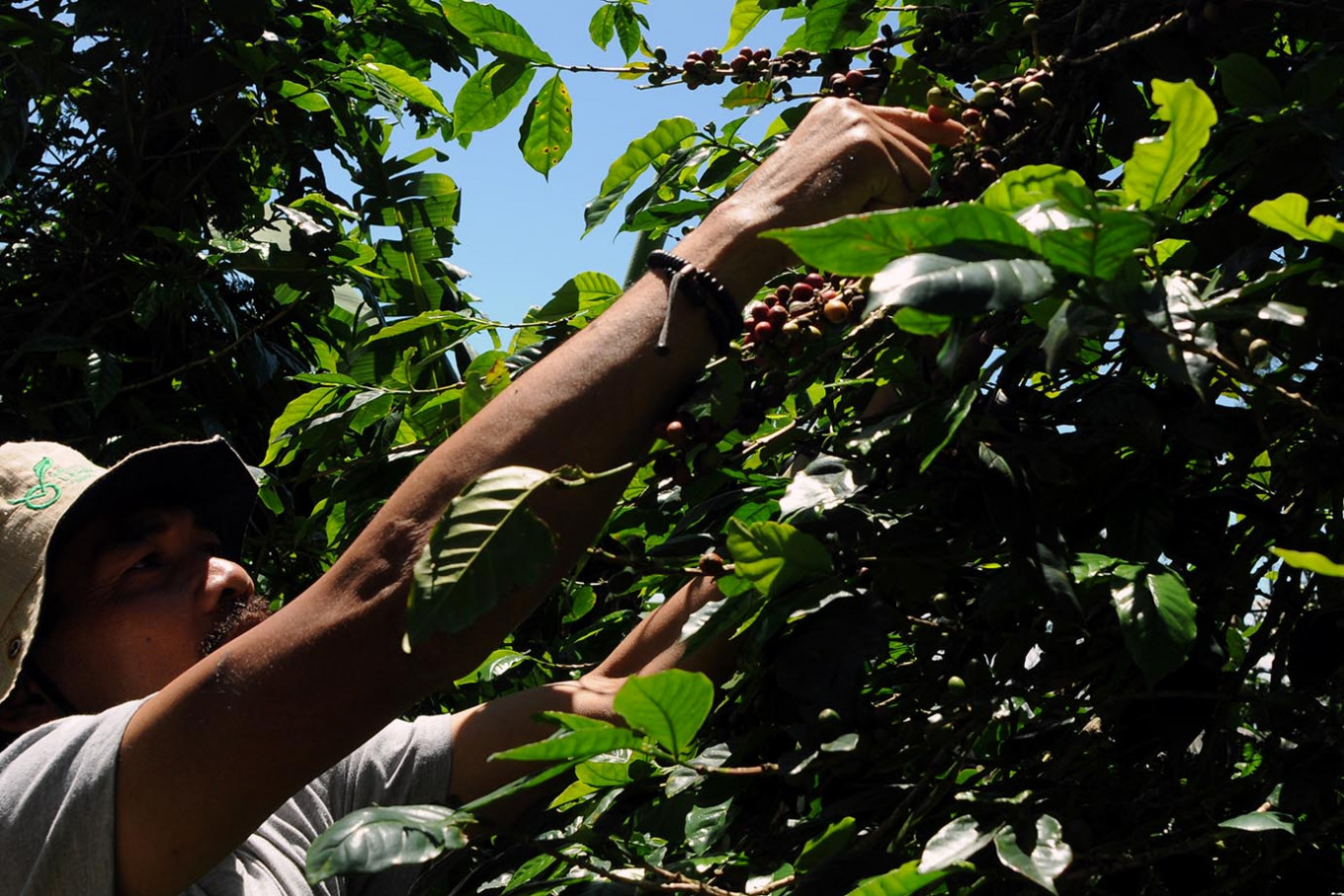Popular Reads
Top Results
Can't find what you're looking for?
View all search resultsPopular Reads
Top Results
Can't find what you're looking for?
View all search resultsAgriculture exports grow as coffee, vegetables, fruits in demand
Change text size
Gift Premium Articles
to Anyone
I
ndonesia is seeing a rise in agriculture exports as its coffee, vegetables and fruits are in demand overseas despite declining global trade.
Agriculture exports reached US$410 million in September, up 16.22 percent from the same month last year, Statistics Indonesia (BPS) data show. Indonesia’s overall exports, meanwhile, were down just 0.5 percent year-on-year (yoy) at $14.01 billion.
“[The agriculture exports] started to pick up in September,” Trade Ministry’s national exports development director general, Kasan Muhri, said in a virtual discussion on Monday. “This is a very good record.”
The government is trying to keep Indonesia’s trade afloat amid the COVID-19 pandemic that is estimated by the World Trade Organization (WTO) to shrink global trade by between 13 and 32 percent this year.
Indonesia has pocketed a $13.51 billion trade surplus so far this year as of September, because imports fell more than exports, BPS data show. The net export anchored the country’s economy in the second quarter, when all other gross domestic product (GDP) components shrank.
Indonesia’s GDP contracted 5.32 percent yoy in the second quarter as household spending and investment plunged due to the coronavirus outbreak. The agriculture sector, meanwhile, managed to record growth as other sectors shrank.
While contributing only 2.4 percent to the country’s total exports in the January-September period, agriculture shipments booked annual growth of 9.7 percent in value at $2.82 billion, BPS data show. It also become the only sector recording an expansion over that period as oil and gas, manufacturing, mining and all other sectors contracted on an annual basis.
Coffee, vegetables, betel nuts, coconuts, guavas, mangos, mangosteens, clove and pepper were the main agricultural goods the country exported in the January-August period, Kasan said.
Coconuts showed the highest rise at 189.19 percent yoy in the period, followed by guavas, mangos and mangosteens that grew by 134.49 percent yoy and cinnamon by 107.32 percent annually.
Nearly one-fifth of Indonesia’s agricultural exports in the January-August period went to China, which was followed by the United States, Japan, Malaysia, Hong Kong and Singapore, Kasan said.
During the period, the country saw the highest annual growth in its agriculture exports to Iran at 297.47 percent. Exports to Spain, the Philippines, Russia, Japan and China also demonstrated robust expansion.
“Exports of agricultural products to some of these countries grew significantly, by double digits on average. Some even [rose] by three digits,” said Kasan.
However, businesses wanting to export agricultural products during the coronavirus pandemic should take into account some challenges related to delivery times, sustainability and hygiene, according to the director general.
"Agriculture exporters should pay attention to these issues, because the destinations cover developed countries, so things related to organic [certification], sustainability, traceability and transparency become important [criteria] that must be met," he said.
Indonesian agriculture exports have faced several issues related to standards, according to Junaidi, the head of compliance, partnership and quarantine information at the Agriculture Quarantine Agency (BKP). The issues included the finding of shoots in coconuts exported to Thailand and alleged deforestation for its crude palm oil shipped to the European Union.
“These are issues that we are trying to manage and minimize, so that our commodities [are acceptable and competitive] in the international market,” said Junaidi on Sept. 14.










